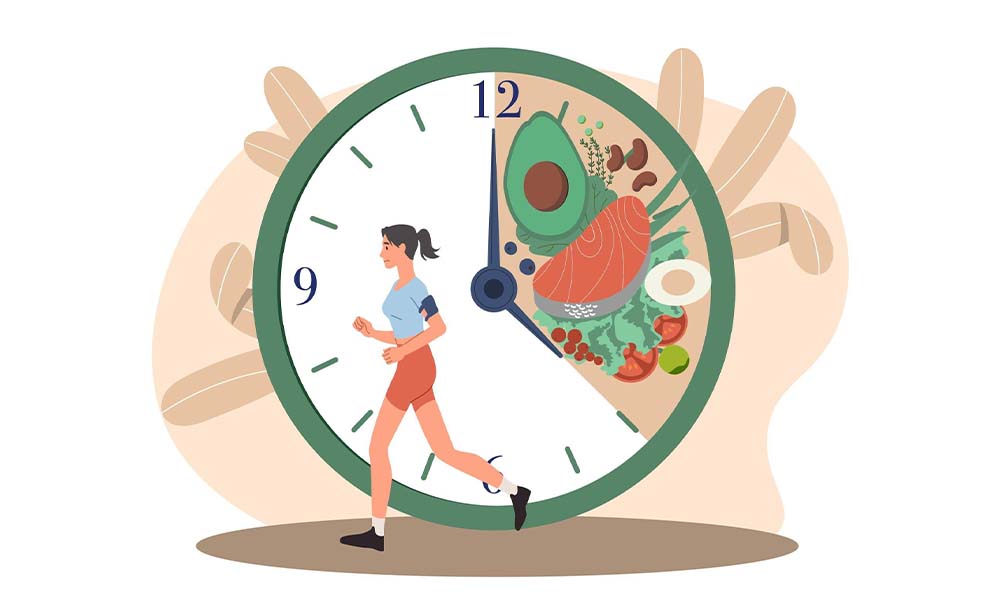Fasting has gained significant popularity in recent years, with many individuals embracing it as a way to improve their health and achieve their fitness goals. However, as the practice of fasting has become more mainstream, questions have arisen about what can be consumed during fasting periods without disrupting the benefits. One such question is whether consuming pre-workout supplements breaks a fast. In this article, we will delve into the science behind fasting, the role of pre-workout supplements, and whether they truly break a fast.
Table of Contents
ToggleWhat is Fasting?

Fasting is the deliberate abstention from consuming food or drink for a specified period. While it has been practiced for centuries for religious and cultural reasons, fasting has gained attention in recent years for its potential health benefits. During fasting, the body shifts from using glucose as its primary source of energy to utilizing stored fat, a process known as ketosis. This metabolic state has been associated with various benefits, such as weight loss, improved insulin sensitivity, and increased autophagy, a process where the body removes damaged cells.
Benefits of Fasting
Fasting offers a range of potential benefits beyond weight loss. Studies have shown that it can improve metabolic health, reduce inflammation, and promote cellular repair. Additionally, fasting has been linked to increased longevity, as it activates several cellular pathways that are believed to extend lifespan. Other benefits include improved brain function, enhanced immune system, and increased production of human growth hormone (HGH), which can aid in muscle growth and repair.
Different Types of Fasting

There are several different types of fasting, each with its own variations and protocols. The most common types include:
- Intermittent Fasting (IF): This approach involves alternating periods of fasting and eating. The most popular IF methods include the 16/8 method (fasting for 16 hours and eating within an 8-hour window) and the 5:2 method (eating normally for five days and restricting calorie intake for two non-consecutive days).
- Extended Fasting: This type of fasting involves abstaining from food for an extended period, typically 24 hours or more. Extended fasting is often done for therapeutic reasons or as a spiritual practice.
- Time-Restricted Eating (TRE): Similar to intermittent fasting, TRE involves limiting the daily eating window to a specific number of hours. For example, a common TRE approach is eating only within a 10-hour window each day.
What is Pre-Workout?
Pre-workout supplements are designed to enhance athletic performance and energy levels during exercise. They typically contain a combination of ingredients, such as caffeine, creatine, beta-alanine, and B-vitamins, which are believed to increase focus, endurance, and strength. Many individuals rely on pre-workout supplements to boost their energy levels and motivation before hitting the gym or engaging in physical activity.
Does Pre-Workout Break a Fast?
The answer to whether pre-workout breaks a fast depends on the specific ingredients and their impact on the body’s metabolic state. Most pre-workout supplements contain calories and artificial sweeteners, which can stimulate an insulin response and disrupt the fasted state. Consuming calories, even in small amounts, can activate the digestive process and halt the body’s reliance on stored fat for energy. Therefore, if your primary goal is to maintain the benefits of fasting, it is advisable to avoid consuming pre-workout supplements during fasting periods.
Impact of Pre-Workout on Fasting Goals

If your fasting goal is primarily focused on weight loss, consuming pre-workout supplements may impede your progress. The calories and artificial sweeteners present in these supplements can potentially lead to an increase in overall caloric intake, hindering weight loss efforts. Furthermore, the insulin response triggered by the consumption of pre-workout supplements may disrupt the metabolic state of ketosis, making it more challenging for the body to utilize stored fat for energy.
The Science Behind Pre-Workout and Fasting
To better understand the impact of pre-workout on fasting, we need to delve into the science behind how the body responds to different nutrients and stimuli. Fasting promotes the release of growth hormone and increases the body’s sensitivity to insulin, both of which are essential for fat burning and muscle growth. However, consuming pre-workout supplements can elevate insulin levels and potentially disrupt these processes. Additionally, the artificial sweeteners found in many pre-workout products can affect gut health and the composition of the microbiome, which can have further implications for overall health and metabolic function.
Alternatives to Pre-Workout During Fasting
If you are looking for alternatives to pre-workout supplements during fasting, there are several options that can provide a natural energy boost without breaking your fast. These include:
- Black Coffee or Green Tea: Both black coffee and green tea contain caffeine, which can increase alertness and energy levels without adding calories or disrupting the fasted state. However, be mindful of consuming these beverages in moderation, as excessive caffeine intake can lead to negative side effects.
- Branched-Chain Amino Acids (BCAAs): BCAAs are a type of amino acid that can be consumed in supplement form. They can enhance muscle recovery and reduce muscle soreness without triggering an insulin response or breaking a fast.
- Natural Energy Sources: Instead of relying on supplements, consider incorporating natural energy sources into your pre-workout routine. These can include consuming a small amount of fruit, such as a banana or apple, which can provide a quick source of carbohydrates without disrupting the fasted state.
Frequentlty Asked Questions
Can I consume pre-workout supplements while fasting?
Many people wonder if taking pre-workout supplements is compatible with fasting. This FAQ will delve into the details.
What is the purpose of fasting before a workout?
Understanding the reasons behind fasting before a workout can help you decide whether pre-workout supplements fit into your fasting routine.
Do pre-workout supplements contain calories?
This FAQ addresses the calorie content of typical pre-workout supplements and how it might affect your fasting state.
Can pre-workout supplements impact the benefits of fasting?
Explore how taking pre-workout supplements might influence the intended benefits of fasting, such as fat loss or improved insulin sensitivity.
Are there specific ingredients in pre-workout supplements to watch out for during fasting?
Learn about the ingredients in pre-workout supplements that could potentially disrupt your fasting state.
When is the best time to take pre-workout if I’m fasting?
Discover optimal timing strategies for consuming pre-workout supplements when fasting to maximize your workout performance.
Are there alternative ways to enhance my pre-fasted workout without supplements?
This FAQ explores natural methods and alternatives to pre-workout supplements that can help you get the most out of your fasted workout.
Conclusion
In conclusion, while pre-workout supplements can provide an energy boost and enhance athletic performance, they are not recommended during fasting periods if your goal is to maintain the benefits of fasting. The calories and artificial sweeteners present in these supplements can disrupt the metabolic state of fasting and hinder weight loss efforts. Instead, opt for natural alternatives such as black coffee, green tea, or branched-chain amino acids to provide a boost without breaking your fast. Ultimately, it’s essential to understand your fasting goals and choose the most appropriate approach to support your overall health and fitness journey.


